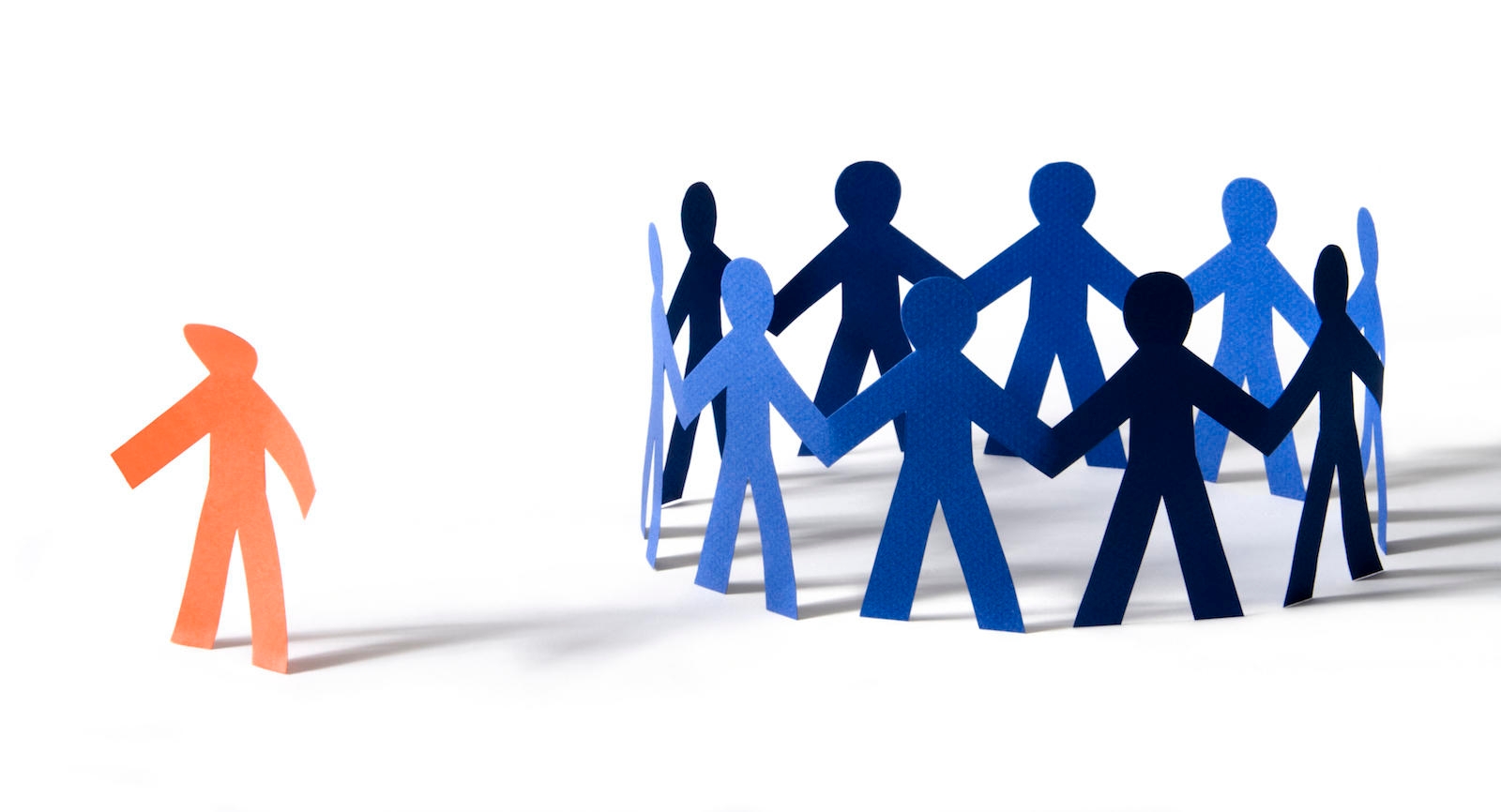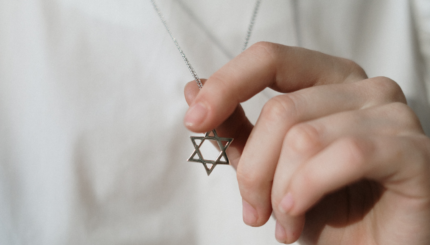Just as you need to be patient with yourself, you need to be a bit patient with the frowners in your new community.
Understand the Discomfort with Converts
Until the present generation, the Jewish community has been forced to be a rather tight and ingrown world. You may not look or act like other Jews they know. Your spiritual approach might intimidate them. They may flaunt their ethnicity to hide their religious illiteracy. Don’t let the skepticism undercut you, but see it as a simple consequence of their experience.
In addition, some born-Jews scoff because they can’t understand why anyone would voluntarily become Jewish and risk the perils of anti-Semitism.
Many converts have taken to calling themselves Jews-by-choice to emphasize their joyful embracing of the Jewish way of life. If a number of people in your synagogue don’t seem to understand why anyone would take this step, ask your rabbi to arrange to have you, or an outside speaker, explain. This can be an affirmative experience for the whole congregation.
With your help, My Jewish Learning can provide endless opportunities for learning, connection and discovery.
Confront the Discomfort
Try to let someone’s first insensitive comment or glance roll off your back. You are an emissary for all converts and need to keep your image in mind. At first, if confronted, be abstrusely polite or disarmingly direct: “Yes, I was born Jewish, but to Episcopalian parents.” “Yes, I’m a convert. Have you known others of us?” “I converted and I’m trying to settle into it. Have any pointers?”
If the person is well meaning, it should be easy to fall into pleasant conversation. But if she is scornful, you can turn on a bit more tartness. Tell her there are Irish Jews, Chinese Jews, blond Jews, black Jews–and there always have been. Tell her that Judaism honors you as a righteous convert.
As this is happening, remind yourself of the many people who have welcomed you into the religion. Try to redraw your friendship circle for awhile so that it brings you into contact with the welcomers and not the rejecters. Gail has felt suspicious glances from some parts of the community, but she has tried not to let them penetrate. “To some people I will never be Jewish,” she says. “That’s the way they feel. But that doesn’t mean that I can’t consider myself Jewish, just because one Jew in the whole world doesn’t feel that I am Jewish.”
Gail and her husband joined a synagogue where they were eagerly welcomed. It was a “very liberal” Conservative synagogue with many young families, including a number of mixed or conversionary couples. “We have been called to be on so many committees,” she said. “They are hungry for people to be involved…. I have been very honest with people about being ignorant about some things. I really have never felt anyone is evaluating me or thinking that I don’t have a place there.”
Get Support
Make it clear to your partner that you will need extra emotional support and encouragement during the transition and for awhile afterward. If your partner doesn’t know how to be supportive, teach him. Tell him you want him with you at key times. Have little home ceremonies (such as a wine toast, or in Judaism saying Shehecheyanu, the “special events” blessing) to celebrate steps in your process, such as telling your parents, completing your conversion course, going through the ceremony, joining your first community group, even telling off the first person who insults you.
In addition to whatever support you get from your partner, you need outside sources of support. Continue your relationship with your mentor and your “adoptive family.”
Find a Support Group
Here, converts can commiserate about adjustment, swap ideas for dealing with parents, in-laws, spouse, and community, and learn religious skills together. In Judaism, the Reform movement has initiated a number of regional and synagogue-based “post-conversion havurot” (fellowships for study and worship). Some Conservative and Reconstructionist synagogues also have convert support groups, formed periodically at local initiative. It is well worth your trouble to find one or to start one if need be, at least in the first months after your conversion. One permanent support group is the Jewish Converts [& Interfaith] Network. Other ways of receeiving support as a new convert, or someone who is considering conversion include online resources like the Experience Project. Discussion groups on Yahoo might also be helpful.
Excerpted from The Intermarriage Handbook: A Guide for Jews and Christians (William Morrow) with permission of HarperCollins Inc.



